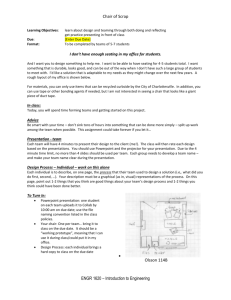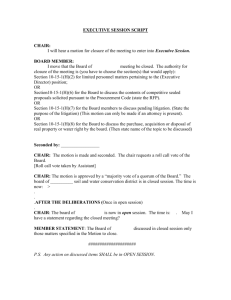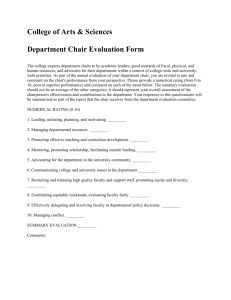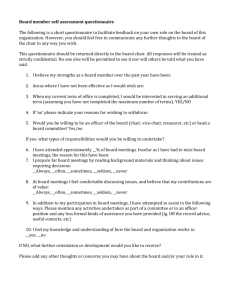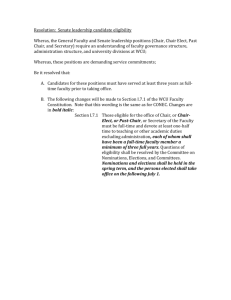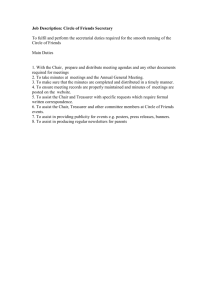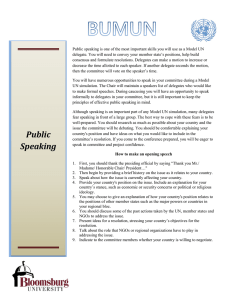The inter-relation between international politics and international
advertisement
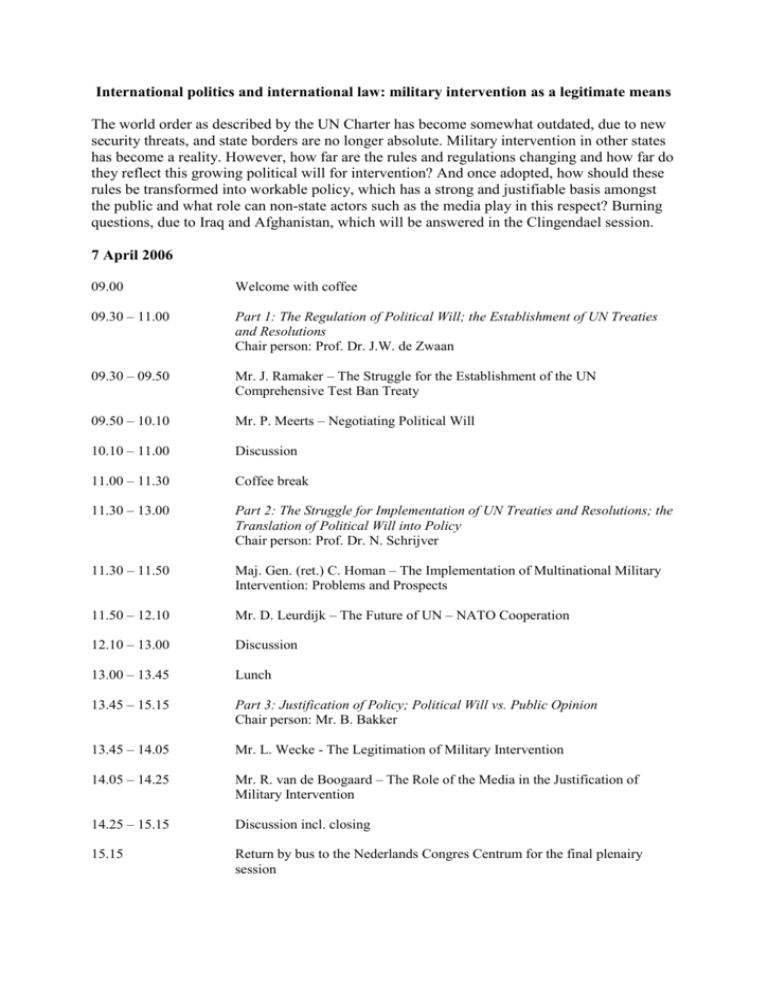
International politics and international law: military intervention as a legitimate means The world order as described by the UN Charter has become somewhat outdated, due to new security threats, and state borders are no longer absolute. Military intervention in other states has become a reality. However, how far are the rules and regulations changing and how far do they reflect this growing political will for intervention? And once adopted, how should these rules be transformed into workable policy, which has a strong and justifiable basis amongst the public and what role can non-state actors such as the media play in this respect? Burning questions, due to Iraq and Afghanistan, which will be answered in the Clingendael session. 7 April 2006 09.00 Welcome with coffee 09.30 – 11.00 Part 1: The Regulation of Political Will; the Establishment of UN Treaties and Resolutions Chair person: Prof. Dr. J.W. de Zwaan 09.30 – 09.50 Mr. J. Ramaker – The Struggle for the Establishment of the UN Comprehensive Test Ban Treaty 09.50 – 10.10 Mr. P. Meerts – Negotiating Political Will 10.10 – 11.00 Discussion 11.00 – 11.30 Coffee break 11.30 – 13.00 Part 2: The Struggle for Implementation of UN Treaties and Resolutions; the Translation of Political Will into Policy Chair person: Prof. Dr. N. Schrijver 11.30 – 11.50 Maj. Gen. (ret.) C. Homan – The Implementation of Multinational Military Intervention: Problems and Prospects 11.50 – 12.10 Mr. D. Leurdijk – The Future of UN – NATO Cooperation 12.10 – 13.00 Discussion 13.00 – 13.45 Lunch 13.45 – 15.15 Part 3: Justification of Policy; Political Will vs. Public Opinion Chair person: Mr. B. Bakker 13.45 – 14.05 Mr. L. Wecke - The Legitimation of Military Intervention 14.05 – 14.25 Mr. R. van de Boogaard – The Role of the Media in the Justification of Military Intervention 14.25 – 15.15 Discussion incl. closing 15.15 Return by bus to the Nederlands Congres Centrum for the final plenairy session





